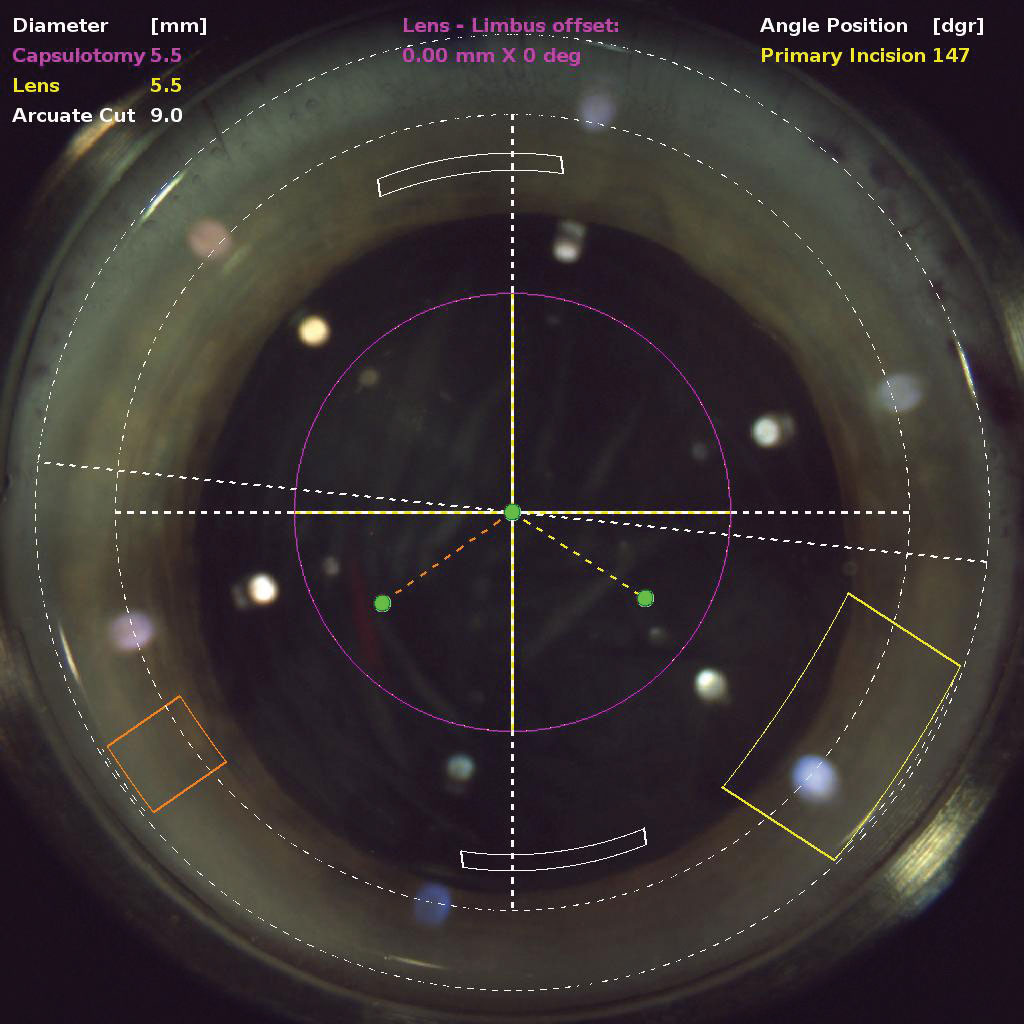 |
| Visual outcomes were shown to be similar in this study between patients treated by FLACS or phaco. Photo: Justin Schweitzer, OD. Click image to enlarge. |
Using a laser to supplant or replace some manual aspects of cataract surgery sounds intuitively compelling, as the added precision may reduce adverse effects, improve visual outcomes or both. Though anecdotal experiences of individual surgeons and some published papers have argued for that conclusion, a recent American Academy of Ophthalmology report found that femtosecond laser-assisted cataract surgery (FLACS) and traditional phacoemulsification cataract surgery have similar excellent safety and refractive outcomes; FLACS, however, typically costs more.
FLACS was introduced in 2011. Previous meta-analyses have reported high precision and a reduction in the amount of ultrasound energy delivered into the eye compared with phaco, but these benefits don’t always mean better outcomes or fewer complications. The Academy wrote in its report, “Since the Cochrane review in 2016, several rigorously conducted randomized clinical trials have been published with short- and long-term follow-up, making this an opportune time to revisit the data.”
The Academy conducted a PubMed search of FLACS studies in 2020. Of the 727 total abstracts identified, 12 met inclusion criteria. The studies reported no significant differences between FLACS and phaco in mean uncorrected distance visual acuity, best-corrected distance visual acuity or percentage of eyes within 0.5D or 1D of the target. Additionally, intraoperative and postoperative complication rates were similar. “In particular, most studies, including the most robustly powered RCTs, show no significant difference in endothelial cell loss between FLACS and PCS,” the report found.
Large randomized controlled trials in the United Kingdom and France reported that FLACS was less cost-effective than phaco. The Academy noted that this economic perspective is “a finding that may generalize to other countries with similar healthcare costs.”
Lin CC, Rose-Nussbaumer JR, Al-Mohtaseb ZN, et al. Femtosecond laser-assisted cataract surgery: a report by the American Academy of Ophthalmology. Ophthalmology. May 13, 2022. [Epub ahead of print]. |

